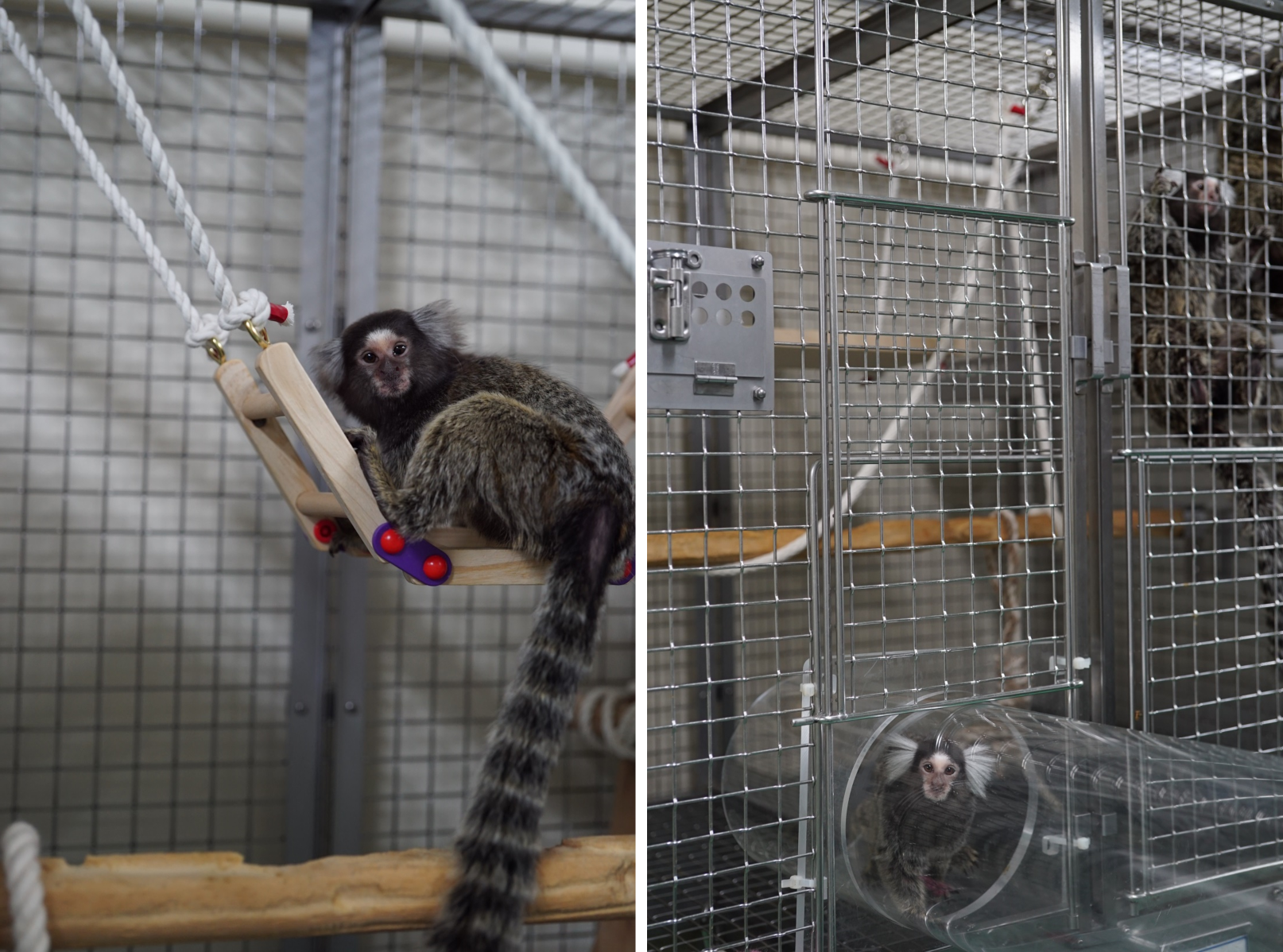CIEM has created various disease models, such as immunodeficiency marmosets and Alzheimer's model marmosets, using transgenic and gene editing technologies.
It is crucial to rase these animal models in a healthy manner to prevent them from suffering from other diseases, enabling effective research.
Since marmosets have a long life span of 10-20 years, we are developing management techniques to ensure that the animals can maintain their health throughout their lives.
For example, marmosets are social animals that live in family groups in the wild, consisting of parents and offspring.
To simulate their natural environment, we have created new family cages and are investigating the optimal size of these cages as well as the types of environmental enrichment necessary for their proper development.

PAGE TOP